BYD Seal U vs Toyota RAV4 - Differences and prices compared
Compare performance (324 HP vs 306 HP), boot space and price (34300 £ vs 35100 £ ) at a glance. Find out which car is the better choice for you – BYD Seal U or Toyota RAV4?
Costs and Efficiency:
Price and efficiency are key factors when choosing a car – and this is often where the real differences emerge.
BYD Seal U has a barely noticeable advantage in terms of price – it starts at 34300 £ , while the Toyota RAV4 costs 35100 £ . That’s a price difference of around 857 £.
Fuel consumption also shows a difference: BYD Seal U manages with 0.40 L and is therefore clearly more efficient than the Toyota RAV4 with 1 L. The difference is about 0.60 L per 100 km.
As for electric range, the BYD Seal U performs clearly better – achieving up to 500 km, about 425 km more than the Toyota RAV4.
Engine and Performance:
Power, torque and acceleration say a lot about how a car feels on the road. This is where you see which model delivers more driving dynamics.
When it comes to engine power, the BYD Seal U has a barely noticeable edge – offering 324 HP compared to 306 HP. That’s roughly 18 HP more horsepower.
In acceleration from 0 to 100 km/h, the BYD Seal U is minimal quicker – completing the sprint in 5.90 s, while the Toyota RAV4 takes 6 s. That’s about 0.10 s faster.
There’s no difference in top speed – both reach 180 km/h.
Space and Everyday Use:
Beyond pure performance, interior space and usability matter most in daily life. This is where you see which car is more practical and versatile.
Both vehicles offer seating for 5 people.
In curb weight, Toyota RAV4 is slightly lighter – 1745 kg compared to 1940 kg. The difference is around 195 kg.
In terms of boot space, the Toyota RAV4 offers barely noticeable more room – 580 L compared to 552 L. That’s a difference of about 28 L.
In maximum load capacity, the Toyota RAV4 performs to a small extent better – up to 1690 L, which is about 225 L more than the BYD Seal U.
When it comes to payload, Toyota RAV4 evident takes the win – 600 kg compared to 410 kg. That’s a difference of about 190 kg.
Who wins the race?
The BYD Seal U proves to be is largely superior and therefore becomes our DriveDuel Champion!
BYD Seal U is the better all-rounder in this comparison.
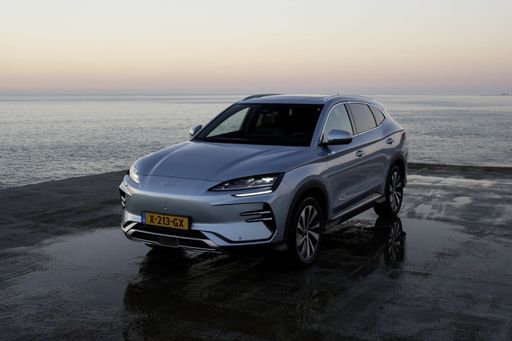
BYD Seal U
Costs and Consumption
View detailed analysis
Engine and Performance
View detailed analysis
Dimensions and Body
View detailed analysis
BYD Seal U
The BYD Seal U pairs a sleek fastback silhouette with a surprisingly roomy, tech-rich cabin, giving electric chic without the showroom pretension. It's a smart pick for buyers after confident handling, sensible practicality and standout value — all wrapped up with a cheeky grin when you put your foot down.
details
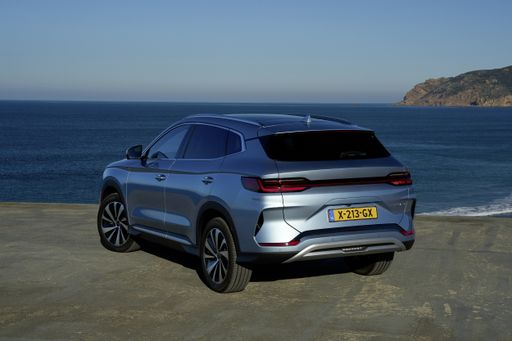
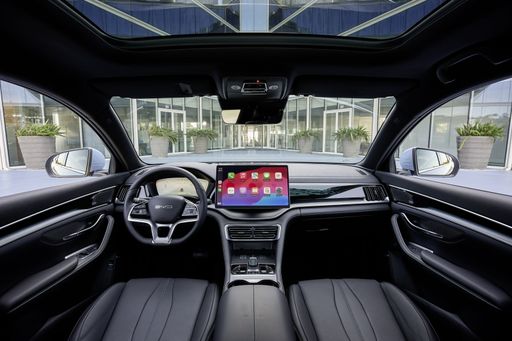
Toyota RAV4
The Toyota RAV4 feels like a sensible friend on the road, marrying dependable practicality with a dash of SUV personality that keeps daily driving from turning dull. Comfortable and easy to live with, it looks tough without shouting and quietly gets the job done — a sensible pick for buyers who want versatility without drama.
details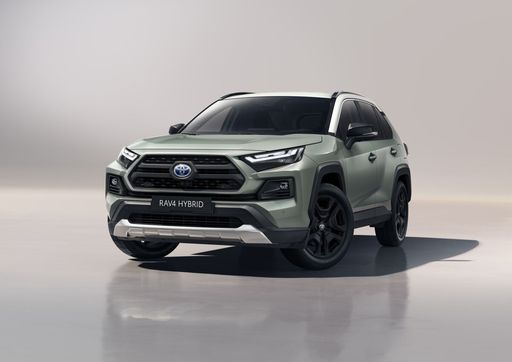
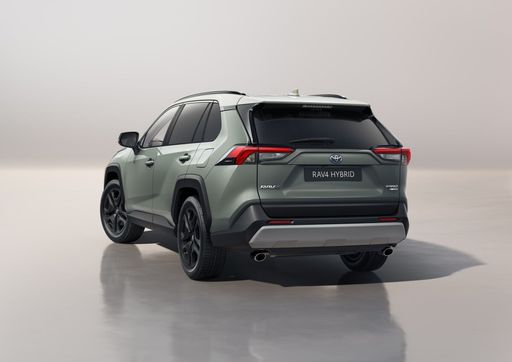
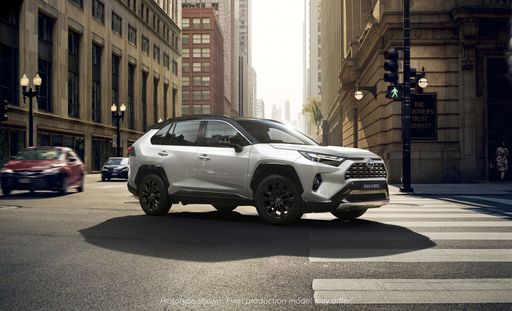
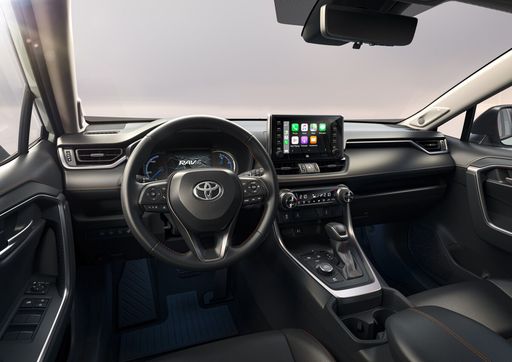
Costs and Consumption |
|
|---|---|
|
Price
34300 - 39800 £
|
Price
35100 - 55700 £
|
|
Consumption L/100km
0.4 - 1.2 L
|
Consumption L/100km
1 - 5.6 L
|
|
Consumption kWh/100km
19.9 - 20.5 kWh
|
Consumption kWh/100km
-
|
|
Electric Range
70 - 500 km
|
Electric Range
75 km
|
|
Battery Capacity
-
|
Battery Capacity
-
|
|
co2
0 - 26 g/km
|
co2
22 - 128 g/km
|
|
Fuel tank capacity
60 L
|
Fuel tank capacity
55 L
|
Dimensions and Body |
|
|---|---|
|
Body Type
SUV
|
Body Type
SUV
|
|
Seats
5
|
Seats
5
|
|
Doors
5
|
Doors
5
|
|
Curb weight
1940 - 2147 kg
|
Curb weight
1745 - 1910 kg
|
|
Trunk capacity
425 - 552 L
|
Trunk capacity
520 - 580 L
|
|
Length
4775 - 4785 mm
|
Length
4600 mm
|
|
Width
1890 mm
|
Width
1855 mm
|
|
Height
1668 - 1670 mm
|
Height
1685 mm
|
|
Max trunk capacity
1440 - 1465 L
|
Max trunk capacity
1604 - 1690 L
|
|
Payload
410 kg
|
Payload
390 - 600 kg
|
Engine and Performance |
|
|---|---|
|
Engine Type
Plugin Hybrid, Electric
|
Engine Type
Full Hybrid, Plugin Hybrid
|
|
Transmission
Automatic
|
Transmission
Automatic
|
|
Transmission Detail
CVT, Reduction Gearbox
|
Transmission Detail
CVT
|
|
Drive Type
Front-Wheel Drive, All-Wheel Drive
|
Drive Type
Front-Wheel Drive, All-Wheel Drive
|
|
Power HP
218 - 324 HP
|
Power HP
218 - 306 HP
|
|
Acceleration 0-100km/h
5.9 - 9.6 s
|
Acceleration 0-100km/h
6 - 8.4 s
|
|
Max Speed
170 - 180 km/h
|
Max Speed
180 km/h
|
|
Torque
300 - 550 Nm
|
Torque
-
|
|
Number of Cylinders
4
|
Number of Cylinders
4
|
|
Power kW
160 - 238 kW
|
Power kW
160 - 225 kW
|
|
Engine capacity
1497 - 1498 cm3
|
Engine capacity
2487 cm3
|
General |
|
|---|---|
|
Model Year
2024
|
Model Year
2024 - 2025
|
|
CO2 Efficiency Class
B, A
|
CO2 Efficiency Class
D, B
|
|
Brand
BYD
|
Brand
Toyota
|
What drive types are available for the BYD Seal U?
The BYD Seal U is available as Front-Wheel Drive or All-Wheel Drive.




